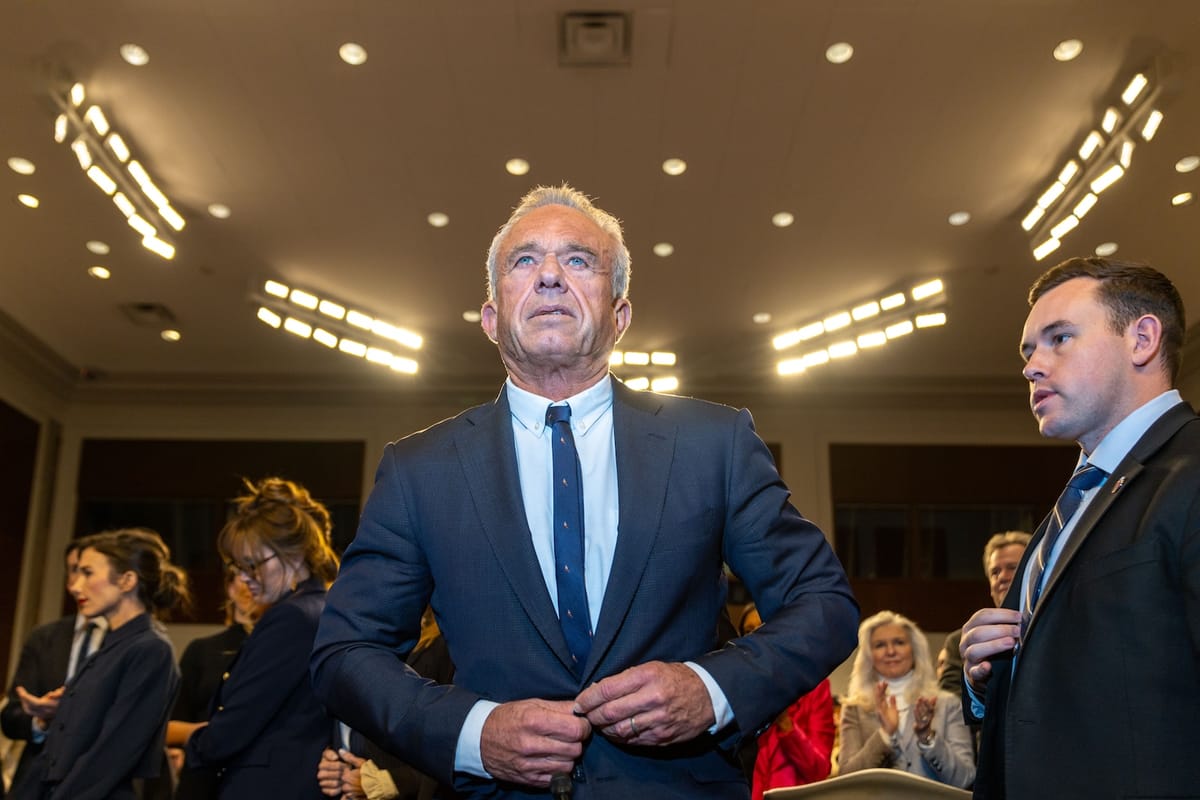

The Appointment of RFK Jr.
In a pivotal moment for health policy in the United States, Robert F. Kennedy Jr., often referred to simply as RFK Jr., has been confirmed by the Senate to serve as the new Secretary of the Department of Health and Human Services (HHS). This appointment by President Donald J. Trump marks a significant shift in the direction of national health policy, aiming to address long-standing issues with fresh perspectives. Kennedy, known for his legal background and his vocal stance on various health topics, steps into this role with a promise to revolutionize how health services are administered and perceived in America.
His confirmation came after a vigorous debate in the Senate, highlighting his controversial yet compelling views on public health, particularly around vaccine safety and environmental health. With his background in environmental law, Kennedy has been a figure both admired and critiqued, but his focus at HHS is set on promoting a broader health agenda. His approach is expected to leverage his experience to push for policies that empower individuals in their health decisions, emphasizing freedom and traditional medicine over what he perceives as an over-reliance on pharmaceutical solutions.
The 'Make America Healthy Again' Vision
At the core of RFK Jr.'s agenda is his ambitious 'Make America Healthy Again' initiative. This campaign isn't just about reacting to health crises but proactively shaping a healthier future for all Americans. Kennedy's vision includes a comprehensive strategy to promote preventive care, encourage natural remedies, and reduce the nation's dependency on prescription drugs. His plan involves significant investment in research into alternative medicine, which he believes has been undervalued or ignored by mainstream medical communities.
The initiative also aims to reform how healthcare is delivered, making it more accessible and tailored to individual needs. Kennedy advocates for a system where doctors have more freedom to treat patients based on their specific conditions rather than following a one-size-fits-all approach dictated by insurance companies or pharmaceutical guidelines. His policies are designed to foster a culture where health autonomy and personal responsibility are at the forefront, encouraging Americans to take charge of their well-being through lifestyle, diet, and less invasive health solutions.
Reforming Health Regulations
One of the most anticipated aspects of Kennedy's tenure at HHS is his commitment to reforming health regulations. He plans to initiate a thorough review of existing health laws and regulations, with a focus on removing those that serve corporate interests over public health. His goal is to create a regulatory environment where transparency, accountability, and the safety of Americans are prioritized. This includes a re-evaluation of how drugs and vaccines are approved by the FDA, ensuring that these processes are not only about speed but also about long-term safety and efficacy.
Kennedy's approach to regulation reform involves engaging with both the scientific community and the public to rebuild trust in health institutions. By questioning the status quo, he aims to ensure that any health intervention introduced into the market is genuinely in the public's best interest, not merely a product of corporate influence or haste. This part of his agenda is about restoring faith in the systems that govern our health, making them more responsive to the needs and concerns of everyday Americans.
Promoting Health Education
Recognizing that true health reform must include education, Kennedy proposes a national campaign to educate Americans about making informed health choices. His strategy involves integrating comprehensive health education into the fabric of American life, from schools to community programs. By focusing on nutrition, physical activity, and mental health education, he hopes to cultivate a generation that values health as a primary asset rather than a secondary concern.
Kennedy's vision for health education doesn't stop at basic knowledge. He envisions programs that teach critical thinking about health information, enabling individuals to navigate the often-confusing landscape of health advice and pseudoscience. By fostering a culture of health literacy, RFK Jr. believes that Americans will be better equipped to choose healthier lifestyles, reducing the burden of chronic diseases and improving overall public health.
Ensuring Access to Care
Perhaps one of the most challenging aspects of Kennedy's agenda is ensuring that all Americans have access to quality healthcare. His approach involves simplifying the healthcare system to make it more user-friendly and less bureaucratic. He supports expanding telemedicine to reach those in remote or underserved areas, reducing the need for travel and increasing convenience for all patients.
Moreover, Kennedy aims to collaborate with the private sector to innovate healthcare delivery without expanding government size or expenditure. His strategy includes streamlining insurance processes to eliminate unnecessary delays and complexities, making healthcare more responsive to patient needs. By focusing on efficiency and reducing red tape, he hopes to make healthcare not just a right but a practical reality for every American, thereby promoting a healthier, more productive society.
Dues are $12 per year. Member benefits:
✅ Ad-Free Website Viewing
✅ Advocacy for Republican Seniors
✅ 120+ Senior Discounts
✅ Member Only Newsletters